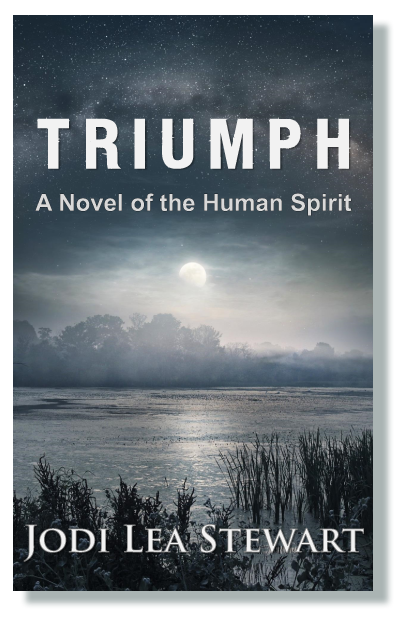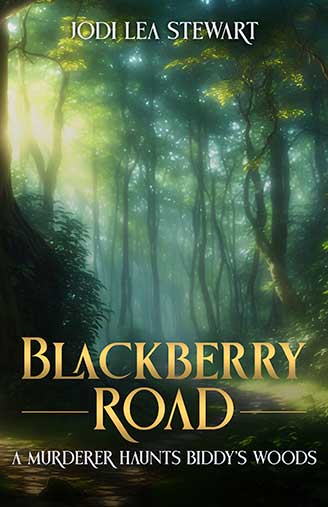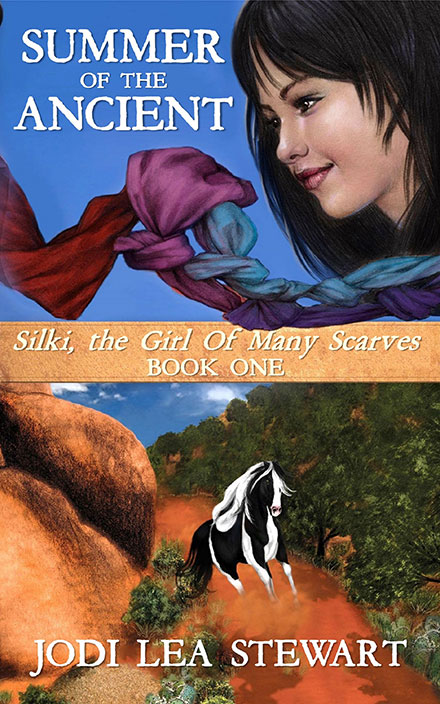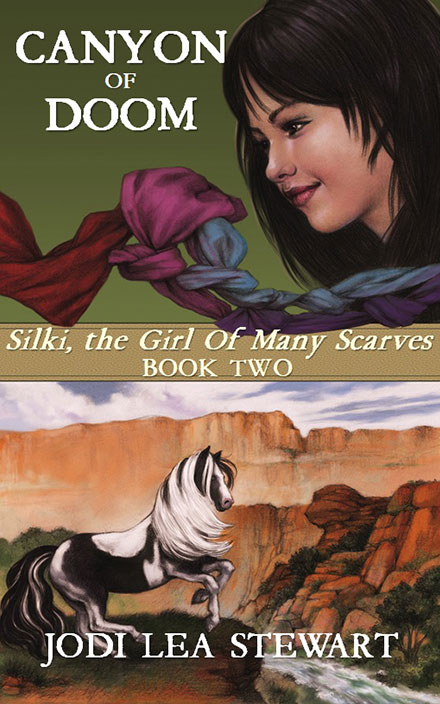
My grandfather, Thomas Elmer Woods, learned a lot from the Five Civilized Tribes: medicine, ceremonial dancing, and how to survive.
After his mother died soon after giving birth to him and his twin sister, his sister was sent to live with relatives in the Pacific Northwest. Elmer headed to Indian Territory, Oklahoma, in a covered wagon with his mother’s brother and his wife. He was two weeks old, and the year was 1884.
Native American Ways
Indian Territory consisted of the lands of the Five Civilized Tribes: Cherokees, Chickasaws, Choctaws, Creeks (Muscogees), and Seminoles, along with twenty-two other tribes.
Elmer got along well with his Native American neighbors. They trusted him enough to let him dance with them whenever he wanted. They taught him their secrets of survival, like how to use roots, leaves, bark and plants to make medicines.
He used that knowledge for his family, and for others, his whole life. The longevity his eleven children enjoyed speaks for the wisdom of those natural preventives.
Case in point – my mother. She’s 93 years young and bakes the best pies you ever tasted, has all her mental faculties, and can still cut a rug when she really wants to.
She’s Elmer’s eighth child, and one of the tonics she grew up on was sassafras tea.
Thinning (purifying) the blood
Elmer insisted that his family members drink sassafras tea liberally every spring to thin their blood after the long, harsh Oklahoma and Missouri winters.
Thomas Elmer gathered roots every spring, and after thoroughly cleansing them, placed them in a pot of water to boil. Soon, the water turned a beautiful clear pink. When the family was fortunate enough to have sugar on hand, they were allowed to add some to the spicy tea, along with fresh cow cream.
You can believe it didn’t take much persuasion for eleven little country kids who rarely got anything sweet to line up for thinning their blood by drinking that delicious, sweet brew!
 As a very young child, I remember seeing a pot on the back of my grandma’s stove with sticks (roots) poking out of the top. That was fascinating, and the tea we had from those roots tasted wonderful. I looked forward to our sassafras tea episodes every year.
As a very young child, I remember seeing a pot on the back of my grandma’s stove with sticks (roots) poking out of the top. That was fascinating, and the tea we had from those roots tasted wonderful. I looked forward to our sassafras tea episodes every year.
Later on, when I was a teenager and more snooty sophisticated, I doubted my granddad’s theory about sassafras tea thinning the blood.
How ridiculous, I thought.
Pure folklore.
Lame.
As time has a way of doing, it one day carved the trails carrying the synapses between my brain centers deep enough for me to venture forth and check this theory for myself.
I quickly discovered that sassafras tea, among other health benefits, is recognized as a natural anticoagulant.
Anticoagulant = blood thinner. Blood thinner keep the blood flowing easier through the heart muscles.
Fancy that!
Ever notice how much smarter we get after our teen years?
In early America, sassafras and tobacco were the main exports from the colonies to England. Sassafras was revered for its medicinal qualities, as well as for the beauty of its wood.
Alas, usage of sassafras tree byproducts, including sassafras tea, has become controversial, which is why it isn’t the main ingredient in root beer anymore. But, just as in the case of anything in this world, a person has to personally measure benefits against possible side effects.
Unfortunately, most studies involving any natural health and medicine remedies seem to involve extra stringent, and *in my personal opinion* sometimes, prejudicial testing.
Honestly, who of us would imbibe or inject the quantities lab animals are subjected to? And why the heck are they doing that anyway?
Those who cling to their gut instincts and rely on the history of the mighty sassafras tree still trust that the ground sassafras leaves that make  up filé powder for certain types of gumbo can’t be wrong. In fact, that powder is considered a main ingredient in authentic Creole cooking.
up filé powder for certain types of gumbo can’t be wrong. In fact, that powder is considered a main ingredient in authentic Creole cooking.
Personally, I have no fear of the sensible consumption of sassafras tea every Spring. I witnessed my granddad use it for decades, and he administered it to all of his eleven children, as well as to his literal MOB of grandkids.
The very best argument in favor of sassafras tea might be Thomas Elmer himself.
He lived well into his eighties with no medicines or prescriptions other than the natural remedies he learned from the Five Civilized Tribes.
He hand-delivered at home all of his eleven children, survived total economic depression with nothing but his two hands to make a living, and played a mean banjo and fiddle with no lessons.
During a particularly harsh economy, he walked and hitchhiked ten miles each way to earn a dollar a day digging ditches and building outside toilets for the WPA. He once managed a farm with hundreds of hogs. He farmed, he picked, he gathered, he tended, he worked at anything and everything to support his loved ones.
Looking at his example, and believe me, he drank that tea every Spring, maybe he was right after all!
You think?
Have you ever tasted sassafras tea? Did you know it was the main flavoring in root beer at one time, or that some people thought of the sassafras tree as the root beer tree? Did your family use any old-timey “medicines” that didn’t come from a pharmacy?
You know I love to hear from you!

Jodi Lea Stewart is the author of a contemporary trilogy set in the Navajo Nation and two historical adventure-mysteries. More are on the way!
Trouble sneaks in one Oklahoma afternoon in 1934 like an oily twister. A beloved neighbor is murdered, and a single piece of evidence sends the sheriff to arrest a black man Biddy, a sharecropper’s daughter, knows is innocent. Hauntingly terrifying sounds seeping from the woods lead Biddy into even deeper mysteries and despair and finally into the shocking truths of that fateful summer.
“Beyond the humor and entertaining antics of the main character, Biddy Woodson, BLACKBERRY ROAD has depth and meaning as it explores stirring universal themes that we expect in great literature” ~ D.B. Jackson, acclaimed Historical and Western author
BLACKBERRY ROAD is engaging, entertaining, and a book that is sure to linger with you . . . the trip is well worth the time ~ Cyrus Webb, Host of ConversationsLIVE, president of Conversations Radio Network, tv show host, author, and publicist
AN ADVENTURE-MYSTERY TRILOGY YOU DON’T WANT TO MISS! SILKI, THE GIRL OF MANY SCARVES trilogy has no age limits.

COMING IN SEPTEMBER:
THE ACCIDENTAL ROAD
A teen and her mother escaping an abusive husband tumble into the epicenter of crime peddlers invading Arizona and Nevada in the 1950s. Stranded hundreds of miles from their planned destination of Las Vegas, they land in a dusty town full of ghosts and tales, treachery and corruption. Avoiding disaster is tricky, especially as it leads Kat into a fevered quest for things as simple as home and trust. Danger lurks everywhere, leading her to wonder if she and her mother really did take The Accidental Road of life, or if it’s the exact right road to all they ever hoped for.
Jodi Lea Stewart was born in Texas to an “Okie” mom and a Texan dad. Her younger years were spent in Texas and Oklahoma; hence, she knows all  about biscuits and gravy, blackberry picking, chiggers, and snipe hunting. At the age of eight, she moved to a large cattle ranch in the White Mountains of Arizona. Later, she left her studies at the University of Arizona in Tucson to move to San Francisco, where she learned about peace, love, and exactly what she DIDN’T want to do with her life. Since then, Jodi graduated summa cum laude with a BS in Business Management, raised three children, worked as an electro-mechanical drafter, penned humor columns for a college periodical, wrote regional Western articles, and served as managing editor of a Fortune 500 corporate newsletter. She currently resides in Arizona with her husband, her delightful 90+year-old mother, a crazy Standard poodle named Jazz, a rescue cat, and numerous gigantic, bossy houseplants.
about biscuits and gravy, blackberry picking, chiggers, and snipe hunting. At the age of eight, she moved to a large cattle ranch in the White Mountains of Arizona. Later, she left her studies at the University of Arizona in Tucson to move to San Francisco, where she learned about peace, love, and exactly what she DIDN’T want to do with her life. Since then, Jodi graduated summa cum laude with a BS in Business Management, raised three children, worked as an electro-mechanical drafter, penned humor columns for a college periodical, wrote regional Western articles, and served as managing editor of a Fortune 500 corporate newsletter. She currently resides in Arizona with her husband, her delightful 90+year-old mother, a crazy Standard poodle named Jazz, a rescue cat, and numerous gigantic, bossy houseplants.
Just for fun . . .

















Great post, Jodi! I can’t imagine what it would have been like growing up with 11 siblings, or giving birth to them. Two siblings is enough for me! 😉 My family stuck to traditional medicines you find in the drugstore. The only thing strange in our household was some of the phrases and foods.
You fired my curiosity up, Kristy! Some of those strange foods and phrases were…?
Thanks for sharing all the tidbits about the family. I was only 9 when we lost Grandpa & really don’t know all that much about him. We just didn’t get to see everyone very often, so learning their stories is cathartic for me. Bring ’em on! 🙂
Lots more coming, Jan! Glad you’re checking in, hon.
Fascinating post, Jodi! I think I could use a bit of sassafras tea right about now. 🙂
Well come on over and we’ll brew us up a cup! 😀
Every year I go through heavy physical changes from spring to summer. I’m getting me some of that sassafras tea! I’ll let you know how it works. Great post. Thanks for the advice.
Cora, I’m looking forward to hearing how it works! Thanks for stopping by.
Love this post,Jodi! Thank you for sharing such a memorable story. (And I’m pretty sure I have a mad crush on Elmer 😀 )
There is so much lost wisdom from generations past and it’s such a wonderful gift to check-in with the wise ways of ancestors who clearly had a good idea of what does a body good! I’ve had sassafras tea, but it was long long ago, and I question if it was even the real deal. This is absolutely something I want to savor for myself.
My mother is the oldest of 11 children and has a slew of wonderful old remedies from back in the day.I just wish I’d paid more attention when pots of odd things were brewing on the stove, and wild growing things were gathered and prepared in ways I’ve long forgotten.
My goodness, Barbara. We have a few things in common, don’t we? Your mom’s perspective from being the eldest of eleven children has to be fascinating. I’ll bet she worked her little fingers to the bone!
Maybe some of the other siblings can remember the old remedies and help you to catalog them? It would be a shame to lose those precious memories.
And you have a crush on “Elmer” all you want. My grandma, Ollie Pearl, God rest her soul, could have used a breather…believe me!! 😀
Love this post! There is such wisdom in the generations past and using nature to remedy their bodies and keep them in balance.
I use natural remedies as much as I can – growing them in the garden when I can and getting them from Mountain Rose Herbs when I can’t. I have heard of sassafras tea but haven’t tried it. I think I will now!
Kim, you are already way down the road in using natural remedies. I like a mixture of modern science and old natural medicines, don’t you? I hope you share your opinion when you try sassafras tea. It’s quite different from any other tea, and I used to love it. Bet you will, too!